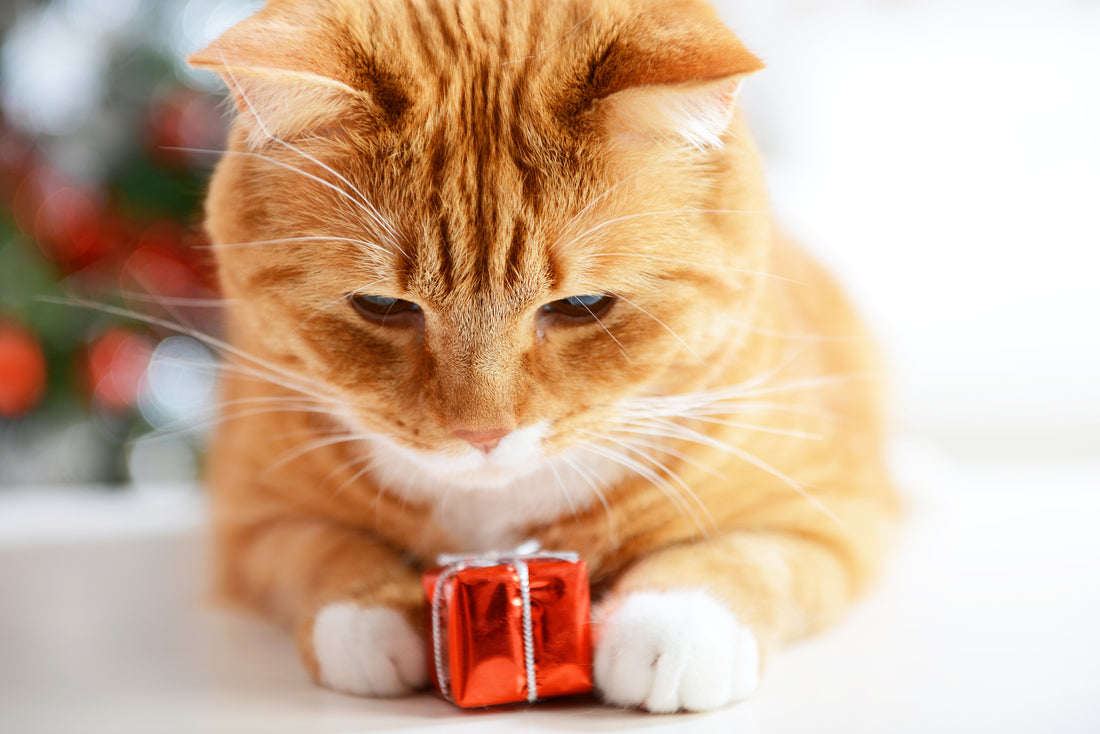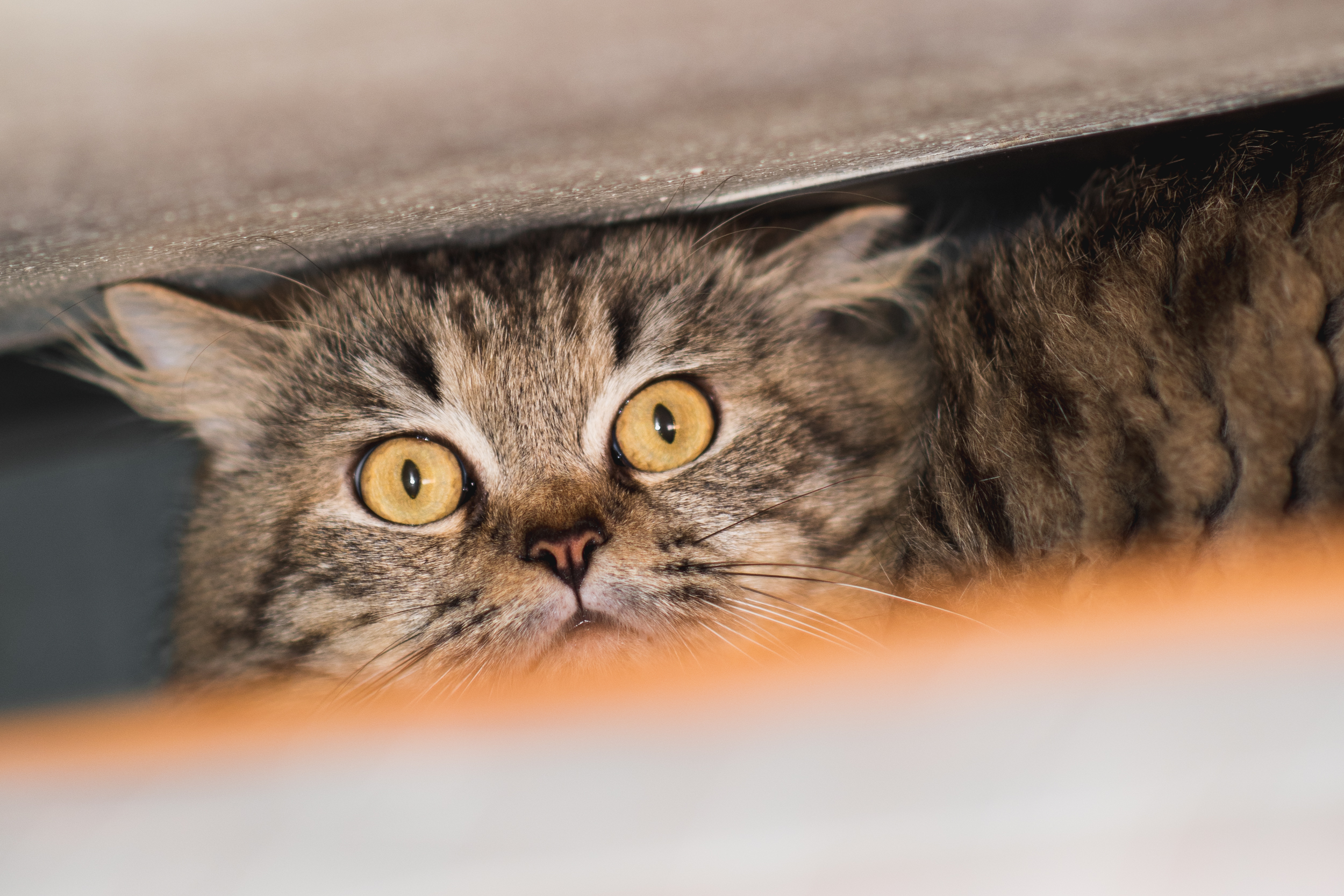
5 Supplement Gifts to Help a Stressed Cat Have a Calm Holiday
Because cats can’t speak to us, pet owners might sometimes forget that our four-legged friends can experience many of the same ailments that we do—particularly stress. A lot of things can cause stress in our cats’ lives, including changes in routine and household. And, much like in humans, prolonged stress not only takes its toll on our cats’ mental health but also their physical health.
Some cats are naturally anxious, experiencing separation anxiety for no particular reason. Other cats may become stressed if your household has recently experienced changes, such as a new family member or pet, a move to a new home, the loss of a pet or a drastic change in routine. It’s important to pay close attention to your cat’s behavior, because their actions toward you and around the home may clue you in to the signs of stress and anxiety.
As we approach the holiday season, now is the perfect time to help out your cat by giving them the gift of calming supplements. Herbal supplements can help them maintain a calm temperament and reduce their stress so they have a happier and healthier new year.
Why stress relief supplements?
Chronic stress can be quite dangerous for pets. As a pet owner, you don’t want anything bad to happen to your beloved cat and are probably willing to go to great lengths to ensure their health and happiness. This holiday season is a great time to ensure these things and show your cat you love them.
When cats experience significant stress or anxiety, they might show it in a number of ways. Sometimes, stressed cats will become aggressive and withdraw from social interactions. Other times, the symptoms will be physical. Digestive problems like diarrhea, a lack of appetite and a drop in energy are all signs that something is wrong.
These things are not ideal in the short term, and they can be extremely dangerous if left untreated in the long term. Your cat needs to eat, sleep and maintain proper digestive function to get all the nutrients they need and keep their health in good shape. Stress can also lead to inflammation, which has been shown to increase the risk of chronic disease.
Not only that, but persistent stress can take a toll on your cat’s mind. When faced with chronic stress, your cat won’t be able to live carefree and enjoy their time in your home. Stressed cats are constantly on edge because they feel the need to protect themselves at any given moment. Their survival instincts are on high alert, even when no threat is present in their living space.
For these reasons, supplements that help your cat manage stress more effectively and maintain a calm demeanor will truly be a gift. By combining these with extra love, attention, dedicated playtime and as much stress elimination as possible, your cat will be able to enter the new year much happier.
Top 5 calming supplements for cats
If your cat is easily upset and prone to anxious or stressed behavior, give them one of these supplement types for the holidays.
- Herbal blends: Some of the best calming supplements for cats are not synthetic medications; rather, they’re blends of herbs that are known to promote nerve stability and relaxation. These natural herbal supplements may help balance hormones and neurotransmitter levels. They have also been known to improve the body’s response to stressors over time. Herbal supplements may help your pet relax without sedation, allowing for better sleep and calmer daily behavior. Many supplement blends include adaptogenic herbs like Ashwagandha and Rhodiola root, which work to bring the body into homeostasis.
- Chamomile: The chamomile flower can offer pets a variety of benefits, including relief from gastrointestinal distress and anxiety. Chamomile has anti-inflammatory properties that can reduce irritation along the lining of the gastrointestinal tract. As a result, cats that take a chamomile supplement may experience less digestive upset. Chamomile extract also possesses a calming effect on the brain that may help your cat relax and let go of stress. In fact, chamomile interacts with the same part of the brain that’s treated by conventional anti-anxiety medications.
- CBD: Cannabidiol (CBD) oil extracted from the hemp plant may also be useful in promoting calm behavior in stressed cats. The cannabinoid interacts with your cat’s endocannabinoid system, influencing receptors that relate to stress and anxiety. CBD oil is natural, safe and often quite effective when administered in the proper doses.
- Valerian root: Valerian root is a purple flowering herb that’s harvested for its stress-relieving properties. This herb relieves stress by creating a mild sedative effect within the cat’s body. It can help calm activity in the central nervous system, which promotes a more relaxed state of mind. Valerian root supplements are most commonly found in tincture form that you can add to food or drop directly into your cat’s mouth.
- Hops: The hops herb is often given as a calming supplement due to its effect on the nervous system. Hops is especially beneficial during long car rides or festivities because it tends to stay in a cat’s system longer than other herbs. Hops can also support proper urinary tract function, which is helpful for cats that eliminate during stressful situations.
Giving your pet the gift of stress-relieving supplements and herbal extracts is much more than giving them the gift of a calmer demeanor. It’s the gift of a happier life, of better long-term health and of joy day to day.
Before you administer any herbal supplements to your pet, check with your vet to ensure none of the supplements will interfere with any medications your pet might be taking and to identify the proper dose for your cat. And, if possible, try to minimize sources of stress from your cat’s life. When you combine these things with your gift of supplements, you and your cat will both be able to enjoy the holiday cheer—and the rest of the year—stress-free!
Editor’s note: This blog was originally published in December 2019. It has been updated to include more relevant and comprehensive information.



